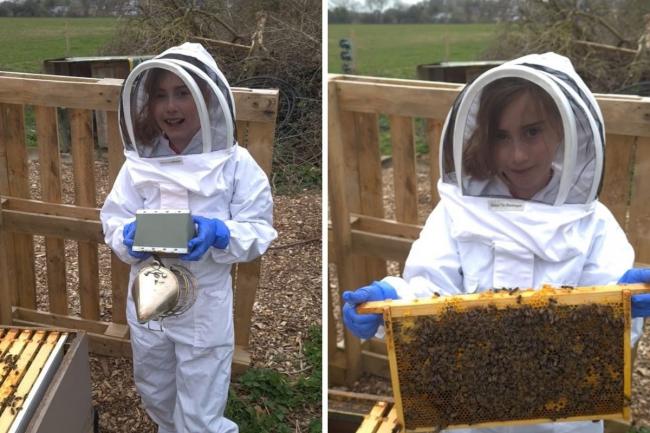Three colonies full to bursting; threw on two supers each as a temporary swarm-control measure (which won't work, but I lives in 'opes).
CONFUSING ENTHUSIASM WITH RESULTS
When you earnestly believe you can compensate for a lack of skill by doubling your efforts, there's no end to what you can't do.
30 April 2021
29 April 2021
28 April 2021
Save the Bees
from British Beekeepers Association https://ift.tt/3ntvTkU
via gqrds
Apiary and Education
from British Beekeepers Association https://ift.tt/3sUhvmQ
via gqrds
26 April 2021
How much does a jar of Hilltop Honey cost?
Came across this, from Hilltop Honey https://lovehilltop.com/
Honey + chilli sounds quite revolting. I'll try some. Works out at £3.99/lb or £8.80/kg
20 April 2021
Water, water, everywhere
Bee books frequently refer to the two uses of water by bees: cool the hive, and dilute stored honey.
That seems odd to me.
To convert sucrose (C12H22011) to glucose (C6H12O6) and fructose (C6H12O6) means that for every sucrose molecule the bee must find one H2O molecule.
Put another way: C12H22011 + H2O [sucrase] = 2(C6H12O6)
So far I have not found reference to this requirement for metabolic water in the books. Maybe nectar - a very dilute sugar solution - provides all the water the bees need for the sucrase conversion, while water brought into the hive is indeed for cooling and honey dilution.
19 April 2021
Who'd have thought oxalic acid could be a human killer, too?
From https://www.iloencyclopaedia.org/part-xviii-10978/guide-to-chemicals/item/1029-acids-and-anhydrides-organic/
Oxalic acid is a strong acid
which, in solid form or in concentrated solutions, can cause burns of the skin,
eyes or mucous membranes; oxalic acid concentrations as low as 5 to 10% are
irritating if exposure is prolonged. Human fatalities have been recorded
following ingestion of as little as 5 g of oxalic acid. The symptoms appear
rapidly and are marked by a shock-like state, collapse and convulsive seizures.
Such cases may show marked renal damage with precipitation of calcium oxalate
in the renal tubules. The convulsive seizures are thought to be the result of
hypocalcaemia. Chronic skin exposure to solutions of oxalic acid or potassium
oxalate have been reported to have caused a localized pain and cyanosis in the
fingers or even gangrenous changes. This is apparently due to a localized
absorption of the oxalic acid and a resultant arteritis. Chronic systemic
injury from inhalation of oxalic acid dust appears to be very rare, although
the literature describes the case of a man who had been exposed to hot oxalic
acid vapours (probably containing an aerosol of oxalic acid) with generalized
symptoms of weight loss and chronic inflammation of the upper respiratory
tract. Because of the strongly acid nature of the dust of oxalic acid, exposure
must be carefully controlled and work area concentrations held within
acceptable health limits.
17 April 2021
Keynote address BBKA Spring Convention 2021: Tipping Points and Perceptions
from British Beekeepers Association https://ift.tt/3dsLRIN
via gqrds
14 April 2021
12 April 2021
In Memoriam
from British Beekeepers Association https://ift.tt/2Q0x4Mh
via gqrds
06 April 2021
BBKA Spring Convention 2021
from British Beekeepers Association https://ift.tt/3dDyBj9
via gqrds
04 April 2021
Overwintered colonies
Not the most glamorous of locations!
01 April 2021
Beacon Schools
from British Beekeepers Association https://ift.tt/3fyIGke
via gqrds






